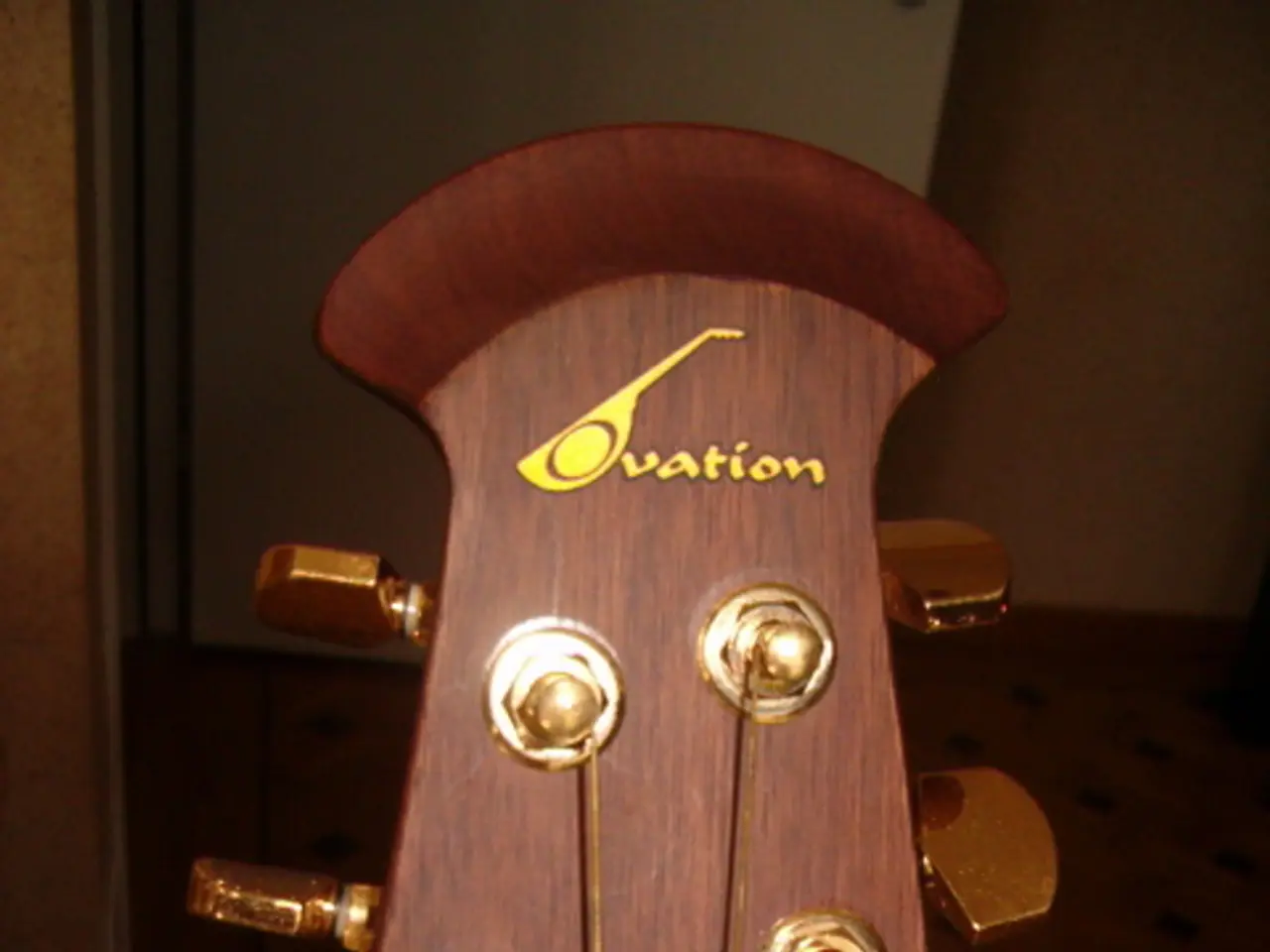Understanding Chords for Musicians: Difference Between a 6th Chord and a 13th Chord
In the realm of music theory, two chords that stand out for their unique sound and complexity are the 6th and 13th chords. This article delves into their construction, sound, and common usage.
A 6th chord, such as C6, typically contains the root, third, fifth, and the major sixth. It can be major or minor, depending on whether the third is major or minor[1][3]. For instance, a C6 chord would consist of C, E, G, and A.
On the other hand, a 13th chord, like C13, builds on the seventh chord by stacking additional chord tones—the ninth, eleventh, and finally the thirteenth (which is the same pitch class as the sixth but an octave higher)[3]. This makes the 13th chord an extended chord that often includes 7ths and other extensions such as 9ths and 11ths, giving it a fuller sound used commonly in jazz and R&B[3][5]. A typical dominant C13 chord would include C, E, G, B♭, A.
In practical application, 6th chords provide a simple, colorful variation of basic triads and are easier to play and use in many genres for adding warmth or tension without complex voicing[5]. Thirteenth chords, due to their complexity, are mostly used in jazz and related styles to achieve very rich, layered harmonies and typically require more careful voicing to avoid muddiness[3][5].
The key difference between a 6th chord and a 13th chord lies in the presence or absence of the 7th. A 6th chord does not include a 7th, while a 13th chord always includes a 7th[1][3]. The 7th defines the dominant function and tension of a 13th chord[6].
A common six-string voicing for C13 includes root, 3rd, 5th, minor 7th, and 13th. The added 13th in a 13th chord creates a complex, tension-building chord, while the 6th in a 6th chord creates a smooth, mellow, and jazzy extension to the triad without introducing tension[2].
When it comes to choosing between a 6th chord and a 13th chord, consider the desired sound. Use 6th chords to add color without tension, and 13th chords to add dominant complexity and harmonic movement[4]. Adding the 13th to a dominant 7th chord can create a rich, layered harmony that propels the music forward.
In conclusion, the 6th chord is a simple, four-note chord that adds warmth and color to a piece, while the 13th chord is a complex, extended chord that adds dominant tension and harmonic movement. Both chords are valuable tools in a musician's arsenal and can greatly enhance the depth and richness of a composition.
[1] "Chord Theory: 6th Chords" by Music Theory for Electronic Producers. (n.d.). Retrieved from https://www.musictech.net/music-theory/chord-theory-6th-chords
[2] "6th Chords and 13th Chords" by Berklee Online. (n.d.). Retrieved from https://online.berklee.edu/blog/6th-chords-and-13th-chords
[3] "6th Chords and 13th Chords" by Musictheory.net. (n.d.). Retrieved from https://www.musictheory.net/lessons/6th-chords-and-13th-chords
[4] "Using 6th and 13th Chords" by Music School Central. (n.d.). Retrieved from https://www.musicschoolcentral.com/using-6th-and-13th-chords/
[5] "6th Chords and 13th Chords" by Musical U. (n.d.). Retrieved from https://www.musical-u.com/learn/6th-chords-and-13th-chords/
[6] "13th Chords" by Music Theory for Electronic Producers. (n.d.). Retrieved from https://www.musictech.net/music-theory/13th-chords
Enjoying a day at the music festival, the entertainment was filled with energizing performances from various jazz and R&B artists who skillfully employedComplex 13th chords, adding dominant tension and harmonic movement to their music. In contrast, during a quiet, intimatesession at the coffee shop, a singer strummed a simple C6 chord on her guitar, creating a smooth, mellow, and jazzy atmosphere with its warm, colorful sound.







